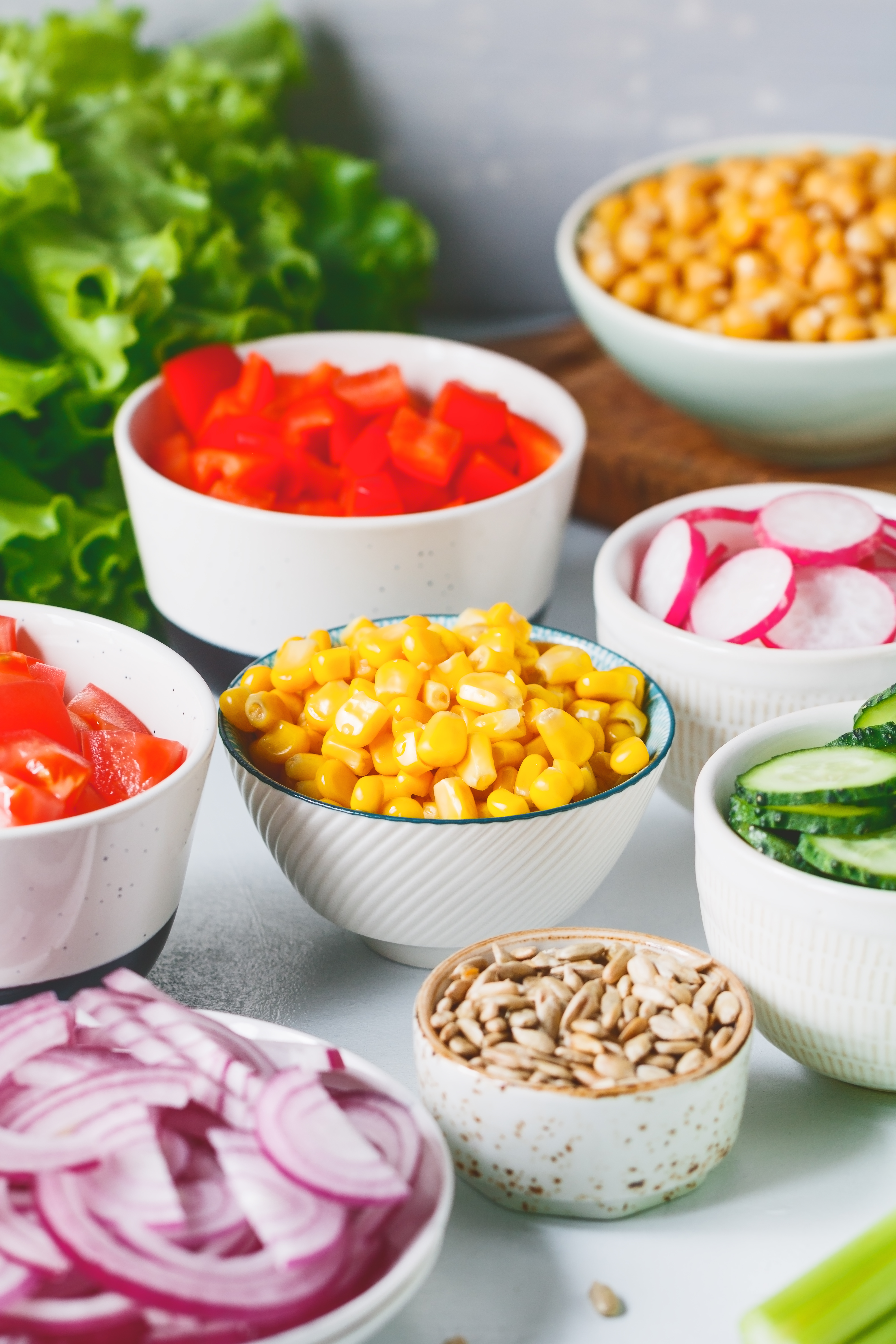I often hear people talk about the trouble that they experience with bloating, irregular bowl movements, and discomfort after eating. In truth I have struggled with this myself. Learning about my gut and understanding how I can care for it has been eye opening and so important to my health journey. Learning what helps our gut function best can be so important.
Our gut is very complex and there is no ‘one size fits all approach’ it can take much trial and error to learn all the answers to the complications that you face. However, I do know that these 5 habits will start to make a difference.
5 Habits that can change your gut!
Drink Plenty of Water:
Water is essential to all body functions but especially in digesting our food. Water helps break down food so that our bodies can absorb the nutrients. It also makes stool softer, which will help prevent constipation. Staying hydrated helps to decrease the inflammation in your gut by keeping food moving through your digestive tract.


Eat 30 DIFFERENT Plants a Week:
This may sound like a lot and it can be in the beginning. Variety is key and can be one of the most important ways to manage a healthy gut. Our gut thrives off of the nutrients and diversity presented in fruits, vegetables, nuts, seeds, grains, beans, and spices.
Here are a few tips to hit your 30 plant sources every week:
- Include a multigrain whole grain bread into your diet. (The current bread that I use has 21 different kinds of grains and seeds in it)
- Try new fruits and vegetables each week.
- Plan your meals around vegetables.
- Add many plant sources to your salads such as: spring mix lettuce blends, nuts and seeds, and a variety of vegetables.
Slow down while eating:
Digestion starts in our mouth. The more we chew our food, the easier it will be for our digestive system to do its work. Slow down and enjoy your food. Listen to your hunger cues. Mindfully eat your meals so you know when you are full.
![]() Move more often:
Move more often:
Being sedentary can lead to decreased blood flow and increased pressure on your digestive system. Being physically active increases blood flow to the muscles in the digestive system. Exercising each day aids in digestion and staying regular. While exercising is important, continuing to stay active throughout the day can be even more beneficial.
Reduce stress:
Within our autonomic nervous system which controls digestion we find the parasympathetic nervous system and the sympathetic nervous system.
Parasympathetic nervous system (REST AND DIGEST): When we are calm and relaxed this is the nervous system at work which help blood flow toward the digestive system. This helps sooth digestion.
Sympathetic nervous system (FIGHT OR FLIGHT): When we are stressed the blood moves away from the digestive system to the heart and muscles. This does not support good digestion.
When we are stressed our sympathetic nervous system activates. When we live in a constant state of stress and worry our digestive system and gut are not able to work properly. Finding ways to cope with our stress is necessary. Here are a few of my favorite ways.

- Deep breathing: breath in (4-6 seconds)-> hold (4-6 seconds)-> breath out (6-8 seconds)
- Get outside in the sunshine and go for a walk
- Journal my thoughts on a stressful situation
- Practicing yoga
No amount of dieting can make up for high stress and no sleep. If this is something that you struggle with START HERE!
It may be common to be bloated, experience uncomfortable cramping, and irregular bowl movements but it is NOT NORMAL. Start by implementing these five tips into your lifestyle. They have made all the difference in my life and I am sure they can help you too.



 One of the most talked about topics since 2020 has been self-care.
One of the most talked about topics since 2020 has been self-care.
 2.
2. 3. Move your body: Studies show that the number one way to decrease stress is to get active. Going for a walk or getting in a good workout can do wonders for our mind and body.
3. Move your body: Studies show that the number one way to decrease stress is to get active. Going for a walk or getting in a good workout can do wonders for our mind and body.
 I am grateful for my mom and my mother-in-law who come and watch my kids so that I can have uninterrupted work hours.
I am grateful for my mom and my mother-in-law who come and watch my kids so that I can have uninterrupted work hours.
 I am consciously choosing the way that my life looks. Each decision that I make is very purposeful.
I am consciously choosing the way that my life looks. Each decision that I make is very purposeful.




 I am so excited and a little nervous to be starting this new adventure. I am currently attending school to become a health and nutrition coach. I have loved learning about holistic nutrition and am excited to start sharing everything from food to fitness to mental wellbeing. I believe that health is much more than the food that you are putting into your body, it is even bigger than closing all the exercise rings on your watch. Health comes from practicing balance in all parts of our life. My goal is to share how I am striving to obtain that balance in my life and help you thrive as well.
I am so excited and a little nervous to be starting this new adventure. I am currently attending school to become a health and nutrition coach. I have loved learning about holistic nutrition and am excited to start sharing everything from food to fitness to mental wellbeing. I believe that health is much more than the food that you are putting into your body, it is even bigger than closing all the exercise rings on your watch. Health comes from practicing balance in all parts of our life. My goal is to share how I am striving to obtain that balance in my life and help you thrive as well.